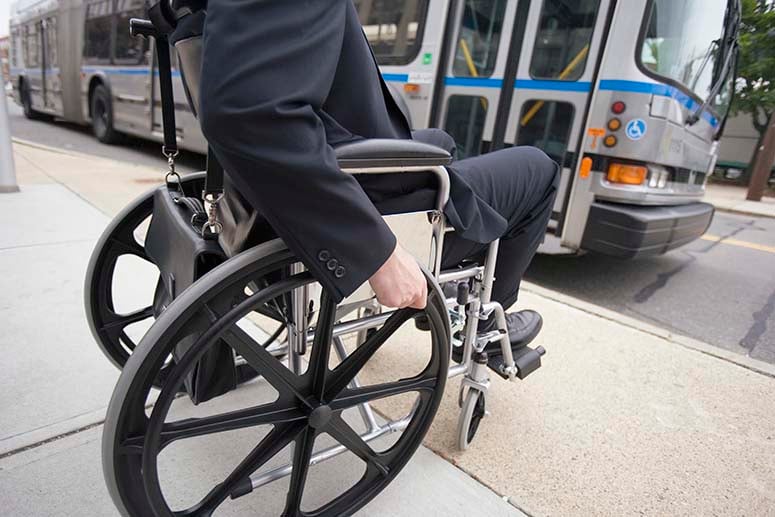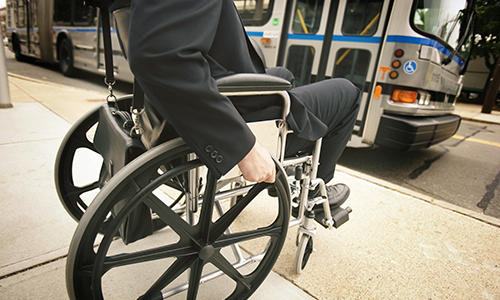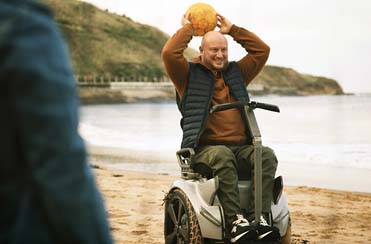Life presents a range of new challenges for spinal cord injury survivors, many of which are exacerbated when it comes to travel. Knowing how to prepare and what to expect are key to success.
Anyone who has survived a spinal cord injury understands that life will never be the same. It will affect your daily activities and how you interact with people, places and things. However, with proper guidance and help from professional carers, even those who have experienced severe types of SCI are capable of returning to some level of normality.

One part of post-SCI life often overlooked is travel.
Whether for business, pleasure or medical reasons, travel is one of life’s great endeavours, and there’s no reason it can’t continue to be, even for those with a spinal cord injury. It’s important to remember, however, that certain things you used to take for granted with regards to travel must now be carefully considered and planned for.
The tips and advice here may seem rather obvious but making them part of your normal travel routine will go a long way towards a successful trip and more enjoyable travel.
Traveling by Air
Airlines and airports present their own unique challenges for people with an SCI. The good news is that most airlines and airports have established practices and protocols for assisting those travelling with a spinal cord injury. Nevertheless, when making a booking or speaking to a travel agent, it’s important to make the following things clear:
· Inform them of your disability
· Let them know if you are bringing a wheelchair and if it is manual or powered
· If you are bringing a powered wheelchair, inform them of the type of batteries
· Inform them if you have a service dog
· Make sure they know where in the plane you prefer to sit
· Let them know whether or not you will need assistance getting on or off the plane with an aisle chair (wheelchair designed to aeroplane specifications
Booking and Staying in Hotels
Just like air travel, your hotel stays will be more successful if, at the time of making your booking, you are clear about your condition, your needs and the hotel services and adjustments necessary to meet them. When making a booking, make sure that you do the following:
· Inform them of your disability
· Let them know if you are using a wheelchair and whether it is powered or manual
· Inform them of your specific bathroom needs (for example, do you need a roll-in shower? A shower chair?)Make sure to ask them about accessible transportation to and from hotel
· Ensure that you ask them about accessible transport to and from the hotel
· Ask them to confirm the condition and location of ramps and lifts
Traveling by Train
Whilst rail travel is not quite as popular as it used to be, many people with an SCI prefer it as a means of travel, whether taking cross-country trips or everyday trips in and around urban centres. Successful train travel for people living with an SCI begins with asking questions and sharing information with transport and booking agents:
· Inform them of your specific disability
· Let them know if you will be taking a wheelchair and whether it is manual or powered
· If powered, inform them what type of battery it runs on
· Inform them if you have and will bring a service dog
· Inform them where you prefer to sit
· If travelling in an overnight carriage, find out if the rooms are wheelchair friendly
Planning Ahead is Everything
Whether travelling by air, train or car, if there’s one general rule of thumb that can be applied to all travel with a spinal cord injury, it would be to do your due diligence on all aspects of your trip and plan ahead. Not only will this ease anxieties commonly associated with any travel, but it will also help to prevent unwanted surprises during transit. The following are just a few of the things you may wish to consider:
· With all bookings and transport, call ahead. Do not take anyone’s word for it that a destination is wheelchair accessible – confirm it yourself
· Find out if and where there are any curbs, ramps and lifts to assist you
· Find out if there are wheelchair repair shops in your area of travel – or be prepared to travel with a backup chair and/or spare parts/batteries
· Consider purchasing travel insurance in case connections fail or claims of accessibility are inaccurate
· If traveling outside the UK with equipment that needs electrical charging, make sure the electrical current requirements of your travel destination match that of your equipment and/or be prepared to bring an adapter or request that one is supplied
· If you take medications, check with your doctor to make sure you have enough needed for the length of your trip
· Always plan out a rough itinerary at the very least








